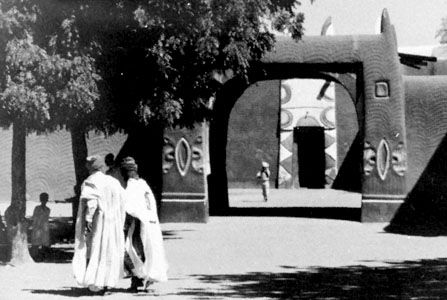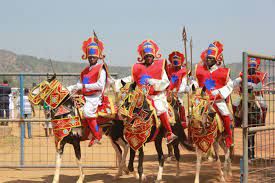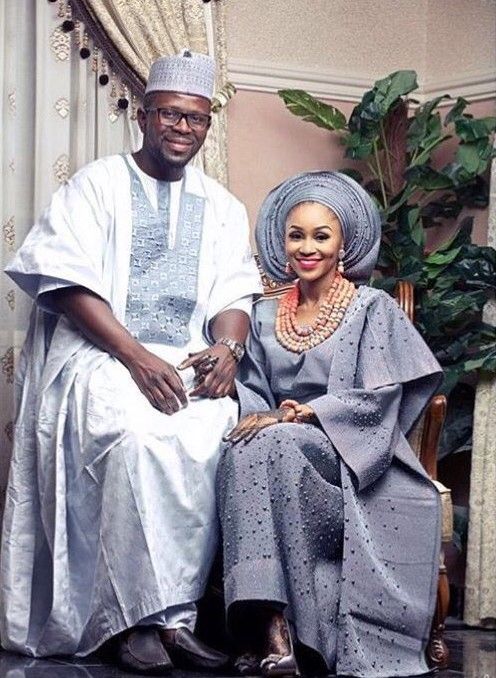Sannu - Hello in Hausa
-
Sannu is a common greeting in Hausa. We present to you some interesting information about the language and the people who speak the language.
In case you are one of them who speak Hausa and wish to report inconsistencies, please reply to this topic.
Hausa is a Chadic language spoken by the Hausa people, mainly within the northern half of Nigeria and the southern half of Niger, and with significant minorities in Chad, Benin, and Cameroon.
Here we will share some interesting facts about the Hausa language and Hausa people:
The Hausa language is one of the approximately 521 languages spoken in Nigeria. It is the mother tongue of the Hausa tribe which is one of the largest ethnic groups in Nigeria.
Hausa is arguably one of the most advanced languages in Nigeria and Africa as a whole. The language was commonly written with a variant of the Arabic script known as Ajami but is now written with the Latin alphabet known as Boko. There is also a Hausa braille system.
Apart from Nigeria and Niger, Hausa is used as a trade language in areas across West Africa including Benin, Ghana, Togo, and Ivory Coast. Hausa is also spoken in countries within Central Africa such as the** Central African Republic, Cameroon, and Gabon**, as well as northwestern Sudan.
The Hausa language has several dialects like Dauranchi, Kananci, Bausanchi, Gudduranci, Kutebanci, Hadejanci, Sakkwatanci, Katsinanci, Arewanci, Kurhwayanci, Arewa, Arawci, Zazzaganci, and Katsina. However, among all of them, Dauranchi and Kananci are regarded as the standard dialect.
Hausa is the only indigenous Nigerian language with foreign station broadcasts. Some international stations that offer broadcasts in the Hausa language include British Broadcasting Corporation (BBC), Radio France Internationale, China Radio International, Voice of Russia, Voice of America, Arewa 24 Deutsche Welle, and IRIB.

(Image Courtesy: https://www.britannica.com/)Hauawa or Hausa people trace their origin to Daura city and the town predates all the major Hausa towns in tradition and culture.

(Image Courtesy: Pinterest)Horses play a significant role in Hausa culture, specifically with the monarchs, as the Hausa aristocracy had historically developed an equestrian-based culture, and till today, horses are regarded as a status symbol of the traditional nobility.

(Image Courtesy: Pinterest)Hausa men are recognized by their elaborate flowing gowns known as ‘Babban Gida’, matched with a cap called ‘Huluna’. The women wear a wrap-around robe called ‘Abaya’ with a matching blouse, head tie, and shawl—they usually have henna designs on their hands and feet.
Hope you like it, if you know any other fascinating facts about Hausa, let us all know!
-
Sannu is a common greeting in Hausa. We present to you some interesting information about the language and the people who speak the language.
In case you are one of them who speak Hausa and wish to report inconsistencies, please reply to this topic.
Hausa is a Chadic language spoken by the Hausa people, mainly within the northern half of Nigeria and the southern half of Niger, and with significant minorities in Chad, Benin, and Cameroon.
Here we will share some interesting facts about the Hausa language and Hausa people:
The Hausa language is one of the approximately 521 languages spoken in Nigeria. It is the mother tongue of the Hausa tribe which is one of the largest ethnic groups in Nigeria.
Hausa is arguably one of the most advanced languages in Nigeria and Africa as a whole. The language was commonly written with a variant of the Arabic script known as Ajami but is now written with the Latin alphabet known as Boko. There is also a Hausa braille system.
Apart from Nigeria and Niger, Hausa is used as a trade language in areas across West Africa including Benin, Ghana, Togo, and Ivory Coast. Hausa is also spoken in countries within Central Africa such as the** Central African Republic, Cameroon, and Gabon**, as well as northwestern Sudan.
The Hausa language has several dialects like Dauranchi, Kananci, Bausanchi, Gudduranci, Kutebanci, Hadejanci, Sakkwatanci, Katsinanci, Arewanci, Kurhwayanci, Arewa, Arawci, Zazzaganci, and Katsina. However, among all of them, Dauranchi and Kananci are regarded as the standard dialect.
Hausa is the only indigenous Nigerian language with foreign station broadcasts. Some international stations that offer broadcasts in the Hausa language include British Broadcasting Corporation (BBC), Radio France Internationale, China Radio International, Voice of Russia, Voice of America, Arewa 24 Deutsche Welle, and IRIB.

(Image Courtesy: https://www.britannica.com/)Hauawa or Hausa people trace their origin to Daura city and the town predates all the major Hausa towns in tradition and culture.

(Image Courtesy: Pinterest)Horses play a significant role in Hausa culture, specifically with the monarchs, as the Hausa aristocracy had historically developed an equestrian-based culture, and till today, horses are regarded as a status symbol of the traditional nobility.

(Image Courtesy: Pinterest)Hausa men are recognized by their elaborate flowing gowns known as ‘Babban Gida’, matched with a cap called ‘Huluna’. The women wear a wrap-around robe called ‘Abaya’ with a matching blouse, head tie, and shawl—they usually have henna designs on their hands and feet.
Hope you like it, if you know any other fascinating facts about Hausa, let us all know!
@agentcarter I liked the attire of the women... really great.

